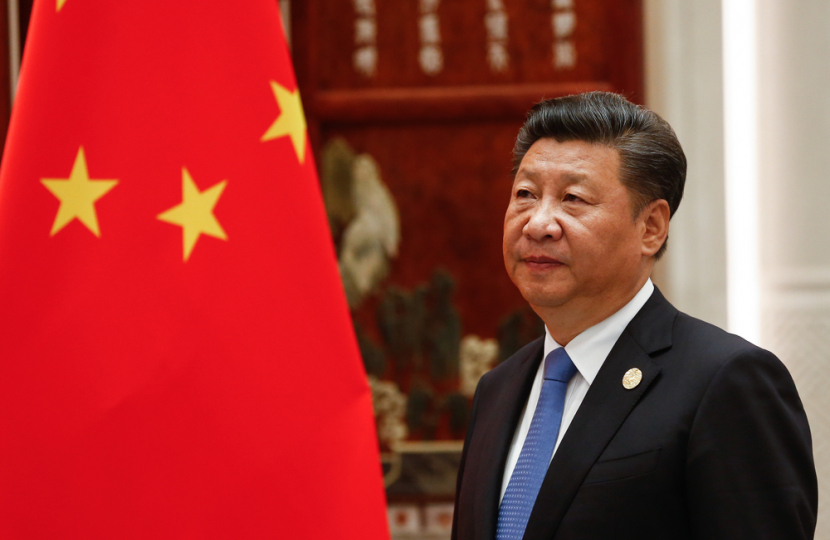
Months after it was completed in which the government blocked the release of the latest Intelligence and Security Committee (ISC) report on China, it was finally released on Thursday.
I had a suspicion the government knew the report would be critical of Britain’s policy towards Beijing, but even I was surprised by the scale of the rebuke; as you turn to page one, the chair makes it clear: “...I think that China represents a risk on a pretty wide scale.”
Independent witnesses to the committee were damning of government policy on China, it said. “They made it clear ...that [the government] did not have any strategy on China, let alone an effective one.”
Yet there is more – much more – of what must be chastening reading to both the Foreign Office and Number 10. The ISC concludes that the government has for too long, and to too great a degree, favoured economic interests over the huge and growing threat posed to us by China.
Britain is paying the price for not taking the China threat seriously UK has ‘no strategy’ to tackle China threat as spies ‘aggressively’ target Britain, the scathing report warns In reality, Britain has become dangerously dependent on China across all sectors of our private and commercial lives – from batteries and electric cars to telephones and the rare earth materials that power our lives. This is reflected throughout the ISC report.
It refers to China’s damaging overt impact on national security through economic takeovers and mergers, as well as the utter reliance on Chinese students by our universities. There are more than five times the number of overseas students from China than from any other country, it points out. This leads to universities too often shutting down criticism of China’s brutal behaviour for fear of upsetting Beijing. Yet when academia has looked to the government for help, it found no point of contact in government to assist.
I was sanctioned by China over two years ago, along with six of my parliamentary colleagues. They not only sanctioned us as individuals, but also all the immediate members of our families. When China hates someone, they throw the net wide.
At the time, I and others had set up the Interparliamentary Alliance on China (IPAC). This has 30 countries involved, with co-chairs from the political left and right. From Japan to the USA, what unites us all is our growing concern that China poses a dangerous threat to the free world.
It was in those early days that, through IPAC and by using official Chinese documents, that we were able to say that China was committing genocide amongst the Uyghur, a minority Muslim group in the west of China, Xing Xiang. Not long after we said so, we were sanctioned.
That is why we have been calling for a change in government policy. After all, the prime minister used to speak of China as the greatest systemic threat we face in the West. Now that has changed to an epoch-defining challenge which we apparently are meant to meet with robust pragmatism.
The ISC report shows beyond doubt that China under President Xi is bound on a course of expansion and global dominance. This, from a country that practises slave labour, genocide of the Uyghur, attacks Christian churches, has trashed the Sino-British agreement on Hong Kong, and is now threatening and arresting democracy campaigners such as brave Jimmy Lai, a British citizen now languishing in prison in Hong Kong, probably for the rest of his life. And now they threaten the territory of Taiwan, a peaceful neighbour.
I recommend that anyone interested should read this report. It is a siren call for us not to repeat the mistakes of the 1930s, or the steps that have led to Russia’s brutal invasion of Ukraine.
Surely we must all learn to treat authoritarian states on the basis of what they are and not what we wish they would be. China is a serious threat to us and the way we live our lives and it is time we called it out as such. Thank goodness this report has done so, for all our sakes.



